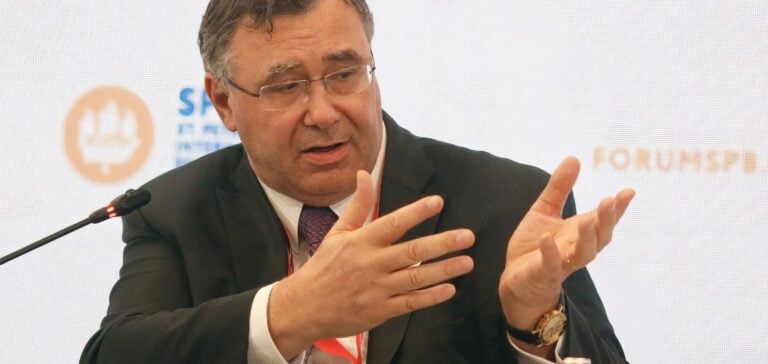In Davos, Patrick Pouyanné, the CEO of TotalEnergies, highlighted the economic challenges faced by the European green industry. During a conference on European electricity, the executive called on the European Union to reconsider its protection policies in order to support its businesses in the global race for energy transition. According to him, despite the EU’s ambitious carbon neutrality goal set for 2050, European industries are disadvantaged by increased competition, especially from China.
The TotalEnergies CEO cited several concrete examples illustrating this issue. He particularly pointed out sustainable aviation fuels (SAF) and solar panels. For Pouyanné, investments in Europe to develop green technologies like SAF are in direct competition with cheap imports from China, a country that produces at much lower costs than Europe. “I am not protected,” he said, stressing the need for a stronger response from the EU to support its industries.
TotalEnergies, which allocates one-third of its investments to renewable energies, faces a difficult reality: production costs in Europe, considered high compared to international standards, make companies vulnerable to foreign markets with fewer constraints. Pouyanné also cited the United States as an example of effective government support. Thanks to the “Inflation Reduction Act” (IRA), the U.S. offers tax incentives to companies that locally produce green technologies. The French CEO illustrated his point by mentioning his investment in solar factories in the U.S., emphasizing that these incentives make the American industry more competitive.
This situation raises crucial questions for the future of energy transition in Europe. European industrial players find themselves in a delicate position: on one hand, the EU’s environmental ambitions require massive investments in renewable energy, but on the other hand, global competition, particularly from China and the U.S., complicates the task.
Despite these challenges, TotalEnergies continues to diversify, focusing on renewable energy while remaining one of the largest exporters of liquefied natural gas (LNG) from the U.S. However, Pouyanné remains convinced that a solution must be found to protect European industry while pursuing the EU’s climate goals.
The Economic Obstacles to Energy Transition
The CEO of TotalEnergies also discussed the need for a balance between energy transition and economic imperatives. If the EU truly aims to achieve its carbon neutrality goals, it will need to find solutions that allow its businesses to remain competitive while adhering to climate commitments. The European industry thus faces a complex dilemma: how to maintain competitiveness while reducing greenhouse gas emissions?
Comparison with American and Chinese Strategies
The American strategy, particularly through the IRA plan, has stimulated investment in green energy while supporting local production. This approach contrasts with that of the EU, where the lack of protections against foreign imports has exacerbated the difficulties faced by European industries. According to Pouyanné, the EU’s response to foreign competition needs to be more proactive if it wishes to maintain its position in the global renewable energy market.






















